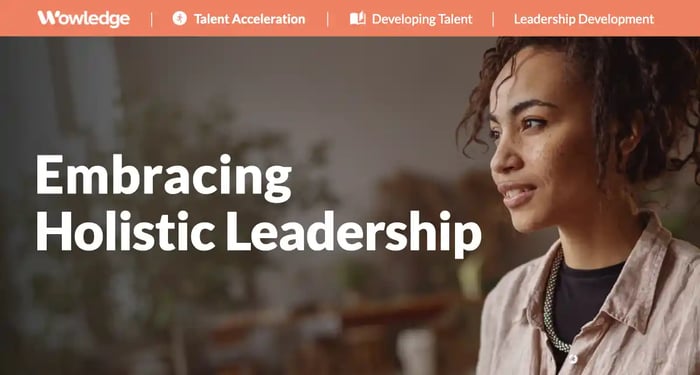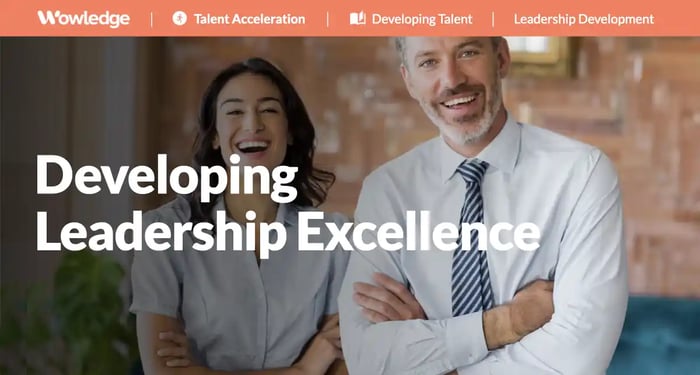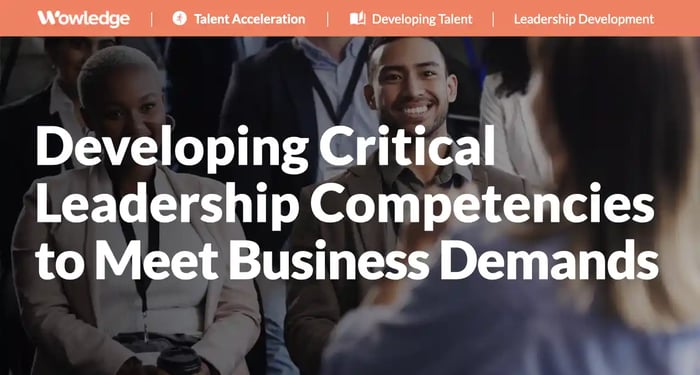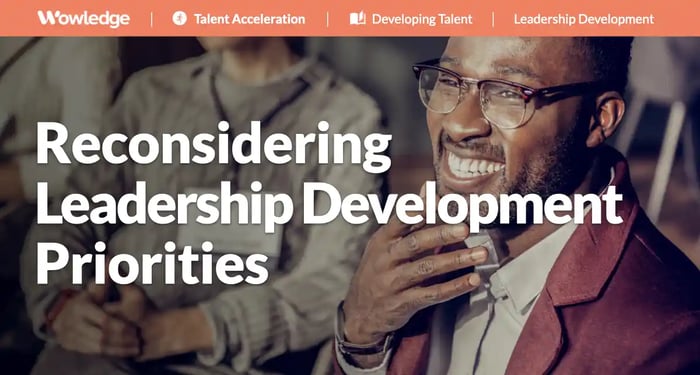Table of Contents
- Queen Mindset Leadership and its impact on revitalizing leadership
- Why does holistic leadership matter to HR pioneers today?
- What are the humanistic challenges organizations are facing post-pandemic?
- How does it impact organizations and leaders in a post-pandemic world?
- Actions organizational leaders can take
- Leader reflections and actions
- Outcomes and impact
- Relevant Practices & Tools
- FAQs
Here’s a radical thought –
What if we all collectively took a deep breath and gave ourselves time to reflect on and integrate the mayhem of living through a pandemic? How might a more holistic leadership development approach lead to more suitably skilled executives?
The 2020 pandemic changed the world for everyone and ushered in a paradigm-shifting impact on organizations and leaders. As the world shut down and leaders and non-leaders alike struggled with their mental wellness and maintaining a sense of certainty in the most disruptive collective change we’ve experienced in this lifetime, the case for more heart-centered leadership arose. Whereas a focus on strategy and results were the primary markers of successful leadership pre-pandemic, the most progressive organizations changed course with an emphasis on cultivating people-centric leaders who had the courage and heart to help their people become their best, most capable, and wisest selves. As Forbes reported in the top leadership trends of 2023, creating leaders who are human experts and understand how to influence behavior is increasingly imperative to organizational success. That calls for the development of holistic leadership.
But as with any paradigm shift, organizations and leaders have lagged in creating overarching changes in the structures, systems, and ways of working that honor the greater consciousness of balancing work with… more life. The well-being literature consistently shows that the keys to a long-lived life include holistic wellness that centers not just on physical, mental, and emotional well-being but also spiritual and energetic. When people take the time to reflect on who they have been and who they wish to be, as well as their purpose in this lifetime, they create a ripple effect in self-awareness that trickles to all levels. Further, the organizations that empower their rising leaders to be holistic in their self-view, considering their personal and professional selves, will be rewarded with well-rounded and well-grounded leaders who can better understand and engage their people and communities.
This blog explores the "Queen Mindset Leadership" philosophy, a paradigm shift advocating for accessible, holistic leadership development and centering loving kindness, which emphasizes the art of creating space for reflective and intentional action. Why “Queen Mindset”? In chess, the Queen is the most powerful piece on the board, able to move in any direction unobstructed. When combined with compassion, leaders who embody this mindset see themselves as inherently valuable and limitless in their potential to positively impact others. By addressing the major challenges of rampant employee disengagement, robust burnout, and the disrupted sense of belonging caused by the isolation of the pandemic, this holistic model of self and leading aims to transform not only the workplace but the lives of leaders and those they lead.
Queen Mindset Leadership and its impact on revitalizing leadership
Queen Mindset Leadership is a comprehensive philosophy and practical approach to achieving self-actualization in the modern era. Originating from the author's pandemic-driven quest, it facilitates the integration of personal narratives, empowering identities, and reprogramming the mind to embrace one’s gifts, passions, and talents for a positive global impact. Emphasizing expansive mindsets and emotional wellness, this approach draws from a blend of expertise, focusing on realizing potential through a holistic and compassionate self-view. Through deep self-exploration and empathetic exploratory writing, leaders adopting this method learn to navigate uncertain times with vision and conviction, fostering inner strength and clarity. Particularly beneficial for conscious organizations and leaders, it aligns with creating a cohort of self-aware and actualized leaders across all levels.
Let's explore how HR Pioneers can integrate this paradigm into their learning and leadership initiatives. This involves implementing thorough training, establishing a strong leadership framework embedding high-performance habits and wellness, and fostering community collaborations for an enriched employee ecosystem. Offering opportunities for leaders to reflect on strengths and values while embodying a wellness toolkit sets forward-thinking organizations apart. This approach cultivates a new wave of humanistic global leaders adept at unlocking their potential and that of their teams. Note that this article uses employees and leaders interchangeably to highlight the notion that all employees can be leaders, regardless of their titles.
Why does holistic leadership matter to HR pioneers today?
Leadership has evolved beyond one-size-fits-all solutions, especially with Millennials and Gen Zs in leadership roles expressing unique expectations. In the face of unprecedented talent challenges and a dynamic global landscape, individuals at all levels have struggled to navigate uncharted territory while staying grounded.
The traditional hierarchical structures fall short of nurturing the next generation of leaders who can thrive authentically, personally, and professionally. The pandemic eroded the divide between personal and professional life, leaving a population with more questions about their purpose and how to craft an intentional, meaningful future that captures a reimagined and actualized sense of self.
Unlocking this potential involves recognizing the multifaceted dimensions of human existence. It empowers individuals to lead authentically, fostering emotional intelligence, transparency, and trust in their teams. Creating a positive and healthy work environment is crucial for everyone to thrive. Holistic leadership underpinned by Queen Mindset Leadership addresses these challenges and aligns individuals with their true selves.
What are the humanistic challenges organizations are facing post-pandemic?
1. Employee disengagement and misalignment
The nature of work has undergone a substantial shift from traditional career ladders to project-based roles. This transformation has resulted in a misalignment between the personal values of leaders and their professional pursuits, leading to dissatisfaction and disengagement. A holistic approach to leadership development is essential in addressing this challenge. Holistic leadership enhances overall satisfaction and fulfillment by guiding individuals to explore the roots of their disengagement and fostering alignment in purpose, values, and mission.
2. Rampant burnout across levels and industries
The post-2008 recession work culture, characterized by a relentless pursuit of tasks, continues to persist and significantly contributes to burnout. Despite technological advancements making work easier, the volume of tasks remains high. The pandemic era also normalized a continuous cycle of back-to-back meetings, leaving leaders with limited time for reflection and integration. This issue has particularly affected women, who faced significant challenges during the pandemic, leading to a substantial dropout from the workforce. Holistic leadership development encourages organizations to reevaluate their task-oriented approach, emphasizing intentional pauses, prioritized work, and reflection to mitigate burnout and promote overall well-being.
3. Disrupted communities and belonging
Belonging to a community is a fundamental human need, yet studies reveal that a considerable number of leaders have felt or currently feel lonely at work. This loneliness negatively impacts performance and increases turnover. Queen Mindset Leadership acknowledges the importance of addressing these disruptions by fostering a sense of community within and outside organizations. With an emphasis on compassionate self-exploration and leadership, this model recognizes the need to rebuild a sense of belonging starting from within, especially in the wake of disruptions caused by the pandemic.
4. An ever-uncertain market and world
The pace of change is unprecedented, propelled further by the constant evolution of technology. In response to this dynamic environment, organizations need leaders who possess the ability to adapt, innovate, and effectively guide their teams through the persistent uncertainty that characterizes the modern world. This necessitates a strategic focus on leadership development, emphasizing cultivating leaders who can learn to trust and ground themselves internally. This internal grounding becomes particularly crucial when market conditions and the broader global landscape rapidly shift.
How does it impact organizations and leaders in a post-pandemic world?
The repercussions of the challenges mentioned above are profound and complex. Employee engagement is at an all-time low, turnover rates are high, and the overall well-being of the workforce is compromised. Organizations recognize the need for an elevation in leadership development to address these issues and create a culture fostering resilience, innovation, and genuine connection. The goal is to create an environment where leaders can reconnect with themselves, their colleagues, and the communities they serve. Without intervention, organizations face further deteriorating leader health and a diminished capacity to deliver high-quality results. What got us here won’t get us there; it’s time for a change.

Actions organizational leaders can take
1. Recognize the need for holistic leadership development
Acknowledging that leadership development is not merely about acquiring skills and competencies but extends to the holistic well-being of individuals is a crucial first step. Leaders must possess a diverse skill set beyond traditional leadership attributes in today's complex and dynamic work environment. A comprehensive approach to leadership development involves nurturing individuals at all levels in various aspects of their lives, ensuring they are well-equipped to manage their professional responsibilities and thrive personally. The ramifications of a more inclusive approach to leadership development will mean greater benefits to the organization, thereby elevating the diversity of knowledge and talents from all levels.
2. Invest in comprehensive and evolved training programs
In embracing holistic leadership, organizations can implement comprehensive training programs encompassing nine high-performance habits and wellness dimensions. However, these programs need not be confined to in-house initiatives. Organizations can forge community further by collaborating with and highlighting schools, community organizations, and government agencies that can provide holistic wellness opportunities at scale. This collaborative approach exposes leaders to a holistic model of being beyond leadership programs, equipping them to thrive as leaders of their lives.
Let's explore each dimension in more detail to understand how organizations can tailor their training programs effectively.
The Nine Dimensions of Wellness
a. Physical wellness
Physical wellness encompasses maintaining a healthy lifestyle through regular exercise, proper nutrition, and sufficient restful sleep. Organizations can promote physical well-being by providing wellness programs, fitness facilities, and encouraging breaks during the workday.
Positive Outcomes: Leaders who prioritize physical wellness are better equipped to handle stress, make sound decisions, and inspire their teams through their own example. The elevation of physical wellness further enhances creativity, a powerful skill to cultivate for innovative organizations.
b. Emotional wellness
Emotional wellness involves recognizing, understanding, and effectively managing one's emotions. Leadership training programs and coaching can incorporate emotional intelligence exercises, fostering self-awareness and empathy. Creating coaching containers inclusive of more levels of leaders can broaden the impact of developing emotional intelligence at all levels.
Positive Outcomes: Leaders who are emotionally resilient can navigate challenges with grace, build meaningful relationships in and out of work, and create a positive work environment for all.
c. Mental wellness
Mental wellness focuses on maintaining a healthy and agile mind through providing engaging learning opportunities, but also enabling leaders to curate Inner coaches that can help offset critical behaviors both to themselves and their teams. Integrating points of reflection by prioritizing workloads and creating intentional spaces facilitates leaders who can be mindful of their inner chatter and decrease their inner toxicity, and the toxicity they may project onto others.
Positive Outcomes: Leaders prioritizing mental wellness are better equipped to handle complex situations, adapt to change, and foster team innovation.
d. Spiritual wellness
Spiritual wellness focuses on finding purpose and meaning in life. Leadership training programs can include activities that encourage self-reflection, mindfulness practices, and discussions on personal values. Organizations can also empower leaders to embed these conversations within their check-ins and coaching conversations to better understand their team’s state of being and alignment with the team's vision.
Positive Outcomes: Leaders who prioritize spiritual wellness are more likely to lead authentically and inspire their teams with purpose.
e. Energetic (chakra) wellness
Energetic wellness involves balancing and aligning the body's energy centers, often called "chakras". Aligning the chakras and practicing robust boundaries can empower leaders to lead with greater awareness and capacity to manage themselves and their teams in a way that serves the greater organizational vision. Leaders can benefit from meditation, yoga, and mindfulness to enhance their energetic well-being.
Positive Outcomes: Integrating these practices into leadership training can improve focus, emotional resilience, and a heightened sense of purpose.
f. Social wellness
Social wellness revolves around building and maintaining positive relationships. Training programs can emphasize effective communication, team-building exercises, and conflict-resolution skills. Volunteering opportunities, ERGs, and other leader connections can also facilitate this skill. These skills will help leaders not only navigate their relationships with their subordinates but also elevate their skills in networking, collaboration, and building relationships in their personal lives and community.
Positive Outcomes: Leaders prioritizing social wellness create a supportive and collaborative work environment, enhancing team cohesion and morale. Connection to others is also hardwired into our humanity and contributes to elevated well-being and support during difficult times.
g. Financial wellness
Financial wellness focuses on managing one's economic resources effectively, from undoing unhealthy financial habits to building habits of budgeting and saving. As financial stress is one of the greatest sources of stress for most, enabling leaders to better manage their resources will also help them create wealth and impact as they grow in their careers and impact.
Positive Outcomes: Leadership training programs can include financial literacy education, helping leaders make informed decisions about their personal finances and guiding them in creating a healthy work-life balance.
h. Environmental wellness
Environmental wellness involves creating a balanced and harmonious relationship with one's surroundings, whether their personal space, their workspace, as well as a symbiotic relationship with nature. Organizations can promote environmental wellness by fostering a positive workplace culture, emphasizing sustainability, and providing a comfortable and inspiring physical workspace.
Positive Outcomes: Leaders who prioritize environmental wellness contribute to a workplace that supports well-being and collaboration and an organizational mission that fosters sustainability and coexistence with our planet.
i. Recreational wellness
Recreational wellness involves engaging in enjoyable and fulfilling activities outside of work. Research shows that optimism and positive emotions can help offset stress and negative reactions to challenging work situations. Organizations can support recreational wellness by promoting work-life balance, encouraging hobbies, and providing flexible scheduling.
Positive Outcomes: Leaders who prioritize recreational wellness bring a sense of joy and passion to their roles, contributing to a positive workplace atmosphere.
3. Foster a culture of compassion
Encouraging leaders to cultivate loving-kindness and compassion is a transformative step in creating a positive workplace culture. This involves not only understanding the challenges faced by team members but also demonstrating empathy and support. Compassionate leaders build trust, foster collaboration, and create an inclusive environment where individuals feel valued and heard. The practices above can help create a new wave of culture in which leaders are encouraged to bring their whole selves to work, creating a greater sense of belonging and community.
4. Promote Authenticity
Creating an environment where leaders can bring their authentic selves to work is essential for fostering genuine connections. This involves embracing diversity, fostering inclusivity, and celebrating individual strengths. Authentic leaders inspire trust and loyalty, creating a workplace culture where individuals feel comfortable expressing their true selves.
Leader reflections and actions
To initiate the journey towards alignment and overcome burnout, leaders can:
Focus on self-leadership. Learning to master your mind, habits, emotions, and personal narrative can help clarify the actions to take now and learn the discipline to lead with mindfulness and intention.
Reflect on values. Take time to reflect on personal values and ensure they align with professional pursuits. Using assessment or writing prompts, leaders who understand their personal values are better decision-makers and masters at prioritizing.
Prioritize well-being. Audit your well-being practice using the nine areas of wellness above and create an action plan that incrementally embeds these practices into one's leadership vision.
Build connections. Foster connections within and outside the workplace, creating a support network and camaraderie. Crafting an intentional support community will bolster one's wellness and success as they grow.
Reevaluate tasks. Question the perpetual task list culture, identifying tasks that contribute to personal and professional growth and intentionally creating space for reflection and realignment.
Outcomes and impact
Implementing the Queen Mindset Leadership model and embracing holistic leadership development can yield profound outcomes for leaders, including:
Self-Leadership: Individuals develop a heightened sense of self-awareness and purpose, leading to enhanced self-leadership and resilience
Community: By addressing disruptions in belonging, organizations cultivate a supportive and collaborative culture that promotes a sense of belonging among team members and connection to their communities.
Relationships: Holistic leadership fosters positive relationships within the workplace and beyond, creating a ripple effect of empathy and connection and helping to address the crisis of isolation and loneliness caused by the pandemic.
Career Alignment: Individuals experience increased satisfaction and engagement as organizations guide them toward career paths aligned with their values and vocation. Individuals are empowered to regularly reflect on how their career aligns with their passions and gifts and encouraged to invest in their mastery and purpose.
The Queen Mindset Leadership philosophy underscores the importance of encouraging leaders to regularly create space to reflect on their professional and personal journeys, plan for their future, and take mindful action. Embracing holistic leadership, guided by the Queen Mindset Leadership philosophy, offers a transformative approach to leadership development. It recognizes that true leadership goes beyond task completion, emphasizing the significance of intentional pauses for personal and professional growth and potential fulfillment. Through these acts of self-compassion and self-elevation, aspiring and current leaders can help address the multifaceted challenges faced as they try to create a new world order post-pandemic.
The impact extends beyond the workplace, influencing self-leadership, community dynamics, relationships, and career alignment. As organizations embark on this journey and individuals reflect on their values and well-being, a holistic approach to leadership becomes a strategy for success and a sustainable and impactful way of life. HR Pioneers who rise to address these complex challenges will be rewarded with the empowerment of the future generation of highly self-aware and enlightened leaders.
Relevant Practices & Tools
Emerging Leadership Development Practices that Create and Support a Culture of Leadership Excellence. >
Emerging Leadership Development creates a leadership culture that becomes a part of the fabric of the company and is even synonymous with the company name... more »
Building a Culture of Coaching and Mentoring that Creates a Continuous Learning and Improvement Environment. >
Establishing and managing a sustainable culture of coaching and mentoring is an integrated effort that builds an environment where continuous development and growth take center stage... more »
Developing External Ecosystems and Partnerships to Create a Support Network and Springboard for New Ideas. >
It has become increasingly important and common over the past decade for organizations to develop partnerships or ecosystems with other organizations... more »
Analyzing Leadership Development Skill and Capability Gaps. >
Once competencies are defined and participants are identified, it is possible to conduct a more detailed needs analysis. This involves collecting data on each potential program participant... more »
The Personal Board of Directors Tool: Identify Appropriate Mentors to Support an Executive's Transition and Career Success. >
A template that supports identifying the key qualities a potential mentor provides for an executive. The view across individuals allows an executive to refine all potential mentors... more »
FAQs
What evidence should HR gather to justify holistic leadership to a skeptical CFO?
A simple pilot design pairs one cohort of leaders in the same organizational level using holistic practices with a matched control group using other existing practices. Track the differences in manager eNPS, team engagement, regrettable attrition, and cycle time on key deliverables across a six-month period. Converting improvements into metrics such as avoided turnover, expense and productivity lifts creates a credible, finance-ready case.
How can “inner work” be incorporated in secular workplaces without triggering cultural or legal concerns?
Programs should be opt-in and framed around universal skills such as attention control, emotional regulation, and values clarity. Communications must use language that avoids religious terminology and emphasizes proven, evidence-based methods such as breath training, cognitive reframing, and gratitude journaling. Clear boundaries, voluntary participation, and privacy protections maintain inclusion and compliance.
What are practical habits that translate holistic leadership into day-to-day behavior?
Leaders benefit from a three-part cadence: a daily micro-reset (two-minute breathing plus intention), a weekly personal retrospective, and a monthly values alignment check against current priorities. Each habit ends with one specific behavior change for the coming period. Consistency, not intensity, drives outcomes.
How can holistic leadership reduce burnout without simply shifting work onto others?
Teams pair capacity reviews with “start–stop–simplify” commitments that remove low-value tasks before adding reflection practices. Managers model boundary setting by declining noncritical meetings and protecting deep-work schedule blocks on their personal calendars. Burnout risk is monitored via workload predictability and recovery scores, not only hours worked.


![Strategic HR Roadmap Generator [Free Intelligent Tool]](https://app.dropinblog.com/uploaded/blogs/34249597/files/Wowledge_Roadmap_Tool.webp)







